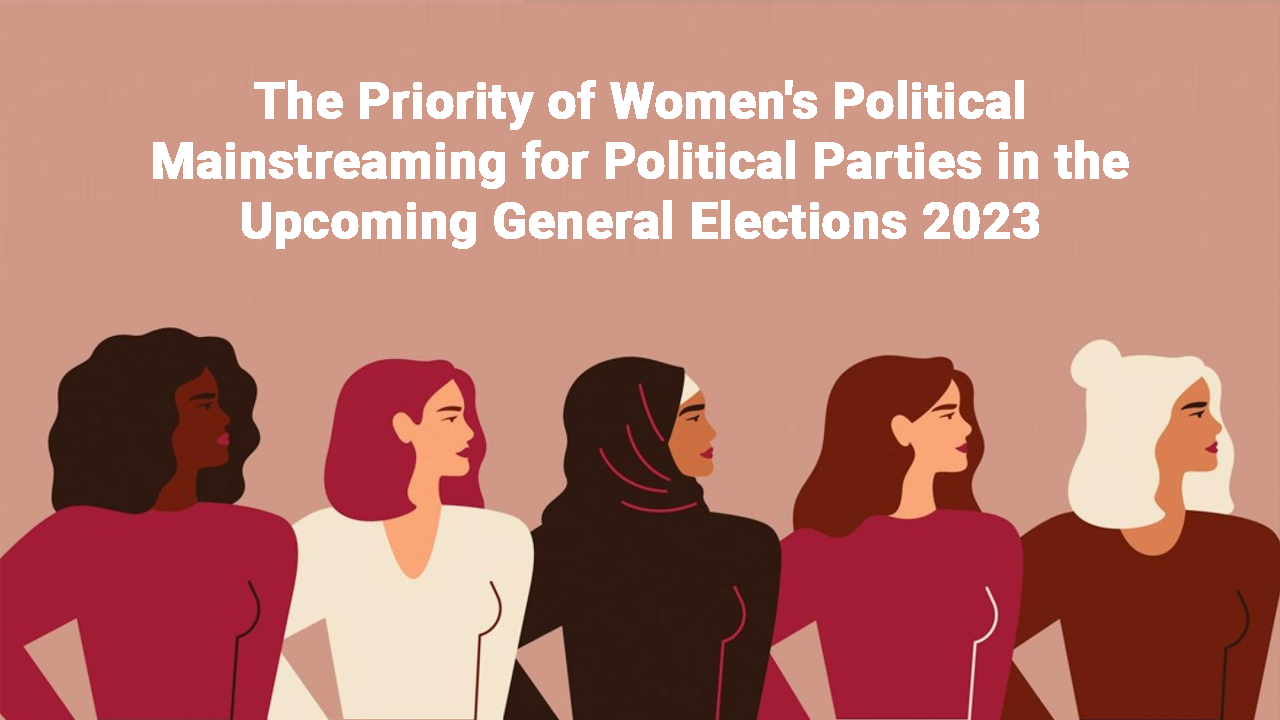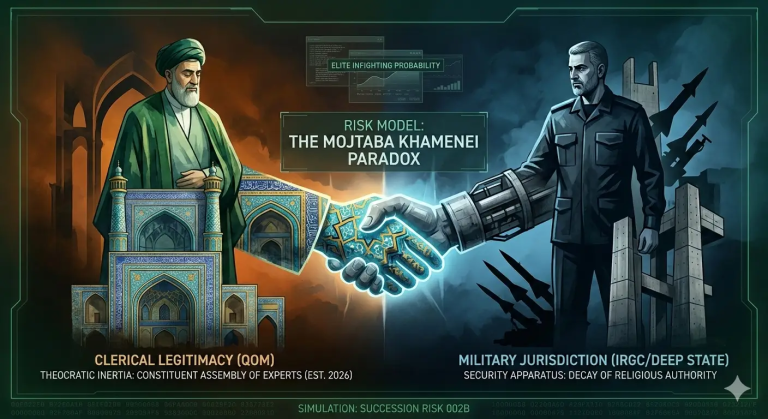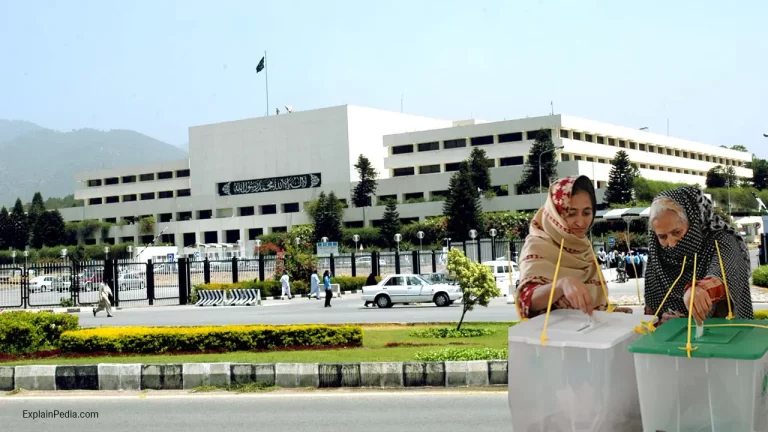A case study of Contesting Candidates of General Elections 2023
Introduction:
The Punjab General Elections, initially scheduled for April 30, 2023, were postponed by the Election Commission of Pakistan (ECP) due to the law and order situation in the country. The federal government and Punjab’s caretaker government provided reasoning for the postponement. In the second schedule, the apex court ordered the commission to hold the General Elections in the province on May 14, 2023. However, the announced elections have been further postponed, resulting in significant changes in the political landscape.
This article aims to examine the list of contesting candidates for the Punjab General Elections 2023 to assess the extent to which political parties demonstrate their willingness to include women in the political and electoral arena, particularly as candidates for general seats.
The reservation of seats in the Constitution has existed since the first Constituent Assembly as a means to increase women’s representation. The gender quota was included in the Constitution of 1973 with the assumption that women would become part of the political mainstream within 20 years. However, this did not happen, and a quota of 17 percent was reintroduced for women in 2002. Presently, only 17 percent of women on reserved seats for women in both National and Provincial Assemblies are part of the legislations.
However, as a result of new legislation in 2017 regarding the election, the Elections Act, 2017 was passed by the Parliament in October 2017. This new legislation took a significant step with the introduction of a five percent gender quota in the Elections Act, 2017, as outlined in Section 206. According to this provision, all political parties are required to allocate at least five percent of their general seats for women at both the national and provincial levels. This measure aims to enhance women’s participation and representation in politics. A closer look at the candidate list for the Punjab General Election will help determine if this gender quota has been effective in achieving its aim or if it remains an unachievable target.
A case study of the Punjab General Elections GE-2023 candidate list:
According to the data provided by the Election Commission of Pakistan a total of 49 political parties participating in the election, as announced by the Election Commission of Pakistan (ECP), only 54 women (4 percent of total candidates) were issued tickets out of the 1,424 candidates eligible to contest on direct seats. A comparison with the General Election of 2018 where only 4.08 percent of total party tickets were issued to women, shows a further decline in the trend. According to Section 206 of the Elections Act, 2017, all political parties are obligated to allocate at least 5 percent of their tickets to women on general seat. However, based on Form-33 of the Punjab General Elections published by the ECP, only five political parties out of 49 (10 percent) issued 5 percent or more tickets to women candidates, while the remaining 44 parties failed to meet the criteria outlined in the Election Law. For instance, Jamiat Ulema-i-Islam (JUI-P) Pakistan issued 70 tickets to candidates but not a single ticket was issued to women, Pakistan Awami Tehreek (PAT), was issued 94 tickets to candidates but only one ticket out of 94, which made only one percent was fulfilled. In contrary to this some small political parties have shown a positive spirit by issuing a voluntary quota such as Aam Admi Tehreek Pakistan was issued total three tickets to candidates, and one ticket issued to woman out of three candidates(33 Percent), which is a positive sign, Pakistan Muhafiz Party National also issued a one ticket to woman out of 5 total tickets 20 percent, Pakistan Rah e Haq Party issued a ticket to woman out of 15 tickets and Pakistan Nazriyati Party also issued a two tickets to woman out of 27 seven Percent.
The limited number of women candidates issued tickets for general seats indicates the varying levels of commitment among political parties regarding women’s inclusion. Many political parties seem to be merely fulfilling the legal requirement without considering the winnability of constituencies or the candidates’ ability to contribute to party funding. Financial constraints emerge as a major barrier to women’s electoral participation, preventing many potential candidates from running election campaigns and canvassing effectively. Despite the legislative performance being unprecedented in the last three decades and lacking significant social and cultural barriers, financial limitations hinder women from contesting elections on general seats. Women political workers and representatives highlight the challenges of domestic roles, male-dominated politics, ticket allocation for unwinnable constituencies, and structural constraints that impede their connection with voters.
While the introduction of reserved quotas through constitutional amendments in Article 51 and 106 of the Constitution was a significant step towards enhancing women’s participation and representation in the political realm, reservations alone have not created a significant impact. Out of the recent Punjab General Elections nominations, only two women from reserved seats received tickets for general seats (one from PPP and the other from PTI). Election experts and women parliamentarians propose recommendations such as improving the criteria for women’s nominations, giving preference to politically sound and experienced women for reserved seats, and setting a benchmark to limit women’s elections on reserved seats to one term. Regulating election campaign finances is crucial to ensuring women’s representation, and waiving or subsidizing nomination fees for women could facilitate their entry into politics. These are some major steps that will help improve women’s inclusion and participation in the political domain.
Conclusion:
While legal requirements exist for allocating tickets to women, the practical implementation and consideration of winnability and financial constraints remain significant challenges. Election Commission of Pakistan (ECP) and lawmakers should take affirmative legal and administrative actions in terms of countering high spending on elections and taking strict action against the political parties who are not complying with given legal remedies with regards to the women participation in electoral process more specifically a contesting candidate. Social and structural barriers also hinder their participation in electoral processes, as these women face cyber-bullying and malicious campaigns on social media, offline harassment in political gatherings, rallies and meetings, bullying/character assassination, and abusive language used for women by opponents in speeches and the assemblies. It is equally important to ensure a safe and conducive environment for women and create a level playing field for them to participate in all electoral processes. Furthermore, it is vital to improve nomination criteria, prioritize politically sound, experienced women for reserved seats, and regulate campaign finances. By addressing these issues, political parties can foster greater gender equality and empower women in the political arena.




